We Do Not Eat Cats and Dogs
Scattered Thoughts from a First-Generation Haitian American
Today’s letter is a deeper one, the kind I’d usually put behind a paywall. But it felt too important not to share with everyone. I was tempted to add a disclaimer, but I won’t. By now, you all know my heart.
15 Months Old
Dear Myles,
An angry orange with a slice of American cheese for hair suggested during a debate with his opponent that immigrants, from the same island and country as your grandmother and grandfather, are eating domesticated animals—namely, cats and dogs.
I wish being Black was the only thing you had to worry about. As much as I tried to avoid writing about this—because what value is there in addressing empty claims, and what sense is there in trying to make people see the beauty I see every day in your eyes when some are hellbent on painting the world ugly? On this very planet you waddle on, there are people driven by the sole desire to reduce you not to what you are, but to what they see. As much as I try to will the love out of this planet for you with my words, you will still have to contend with both the beauty and ugliness that come from sharing the intersections of two beautiful worlds—Haitian and Black.
We do not eat cats and dogs. Maybe some chicken feet, pig feet, cow feet, oxtails, gizzards, and liver. We might suck the eyeballs out of a red snapper, even turkey neck bones, sure—a chicken heart, your grandmother's favorite. We might even drop some beets in potato salad, scoop out the insides of a pumpkin for soup, and pour Carnation milk into orange juice—but never cats and dogs.
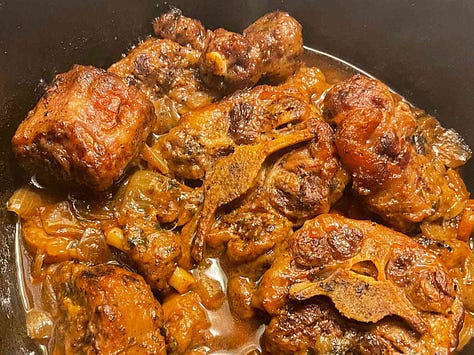
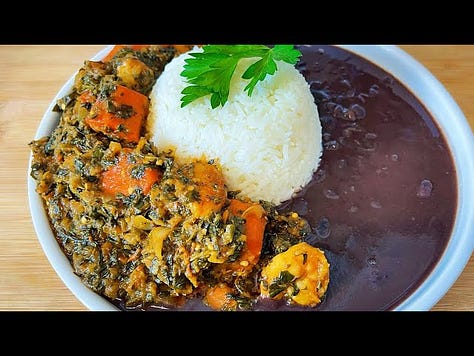

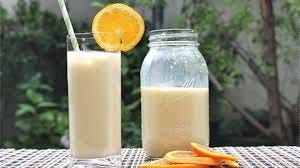
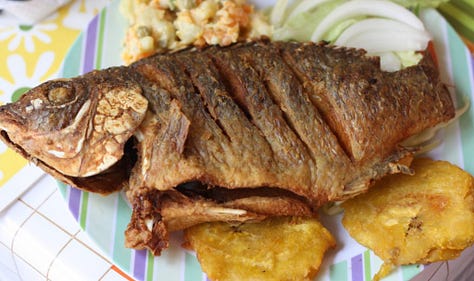
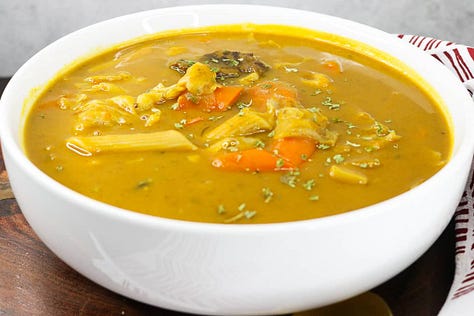
The closest we’ve ever come to having a dog was when I asked your grandmother for one. She told me we already had three—me, my brother, and my father. Grandma isn’t mean or cold, but she could tell a joke with a straight face, and you’d never know if she was serious or not. But God forbid you made one back—she’s as sensitive as I am and could cry at a moment’s notice. Some people have funny bones, but we have crying eyes.
She came to this country with nothing, but every day we went to school fed, moisturized, and never left home with cold in our eyes. And even if we did, she’d lick her thumb, and cold be gone, like she was Jesus healing the blind—both of them, miracle workers. She had commandments too, like never go outside with a hole in your underwear or socks—just in case you got hit by a car, because at least they’d know your drawers were clean, and you’d get the best care possible in any hospital. See times were hard, but we never ate a dog.
We were broke growing up. Butter on white rice, crackers and cheese boiled in water for soup, and I drank coffee with bread—a true Haitian breakfast, and only realized it wasn’t normal to drink coffee that young when a nurse asked what I ate for breakfast after I wasn’t feeling well one day. She looked at me like I had two heads when I told her. And when I asked my mother many years later why we were drinking coffee and bread in elementary school, she told me it was all she had. Maybe that’s why I don’t drink coffee now—because times were hard, but still, we never ate cats.
But we were immigrants; at least your grandparents were. I was born here. My first language wasn’t even English—it was Haitian Creole—an amalgamation of French, Fongbe, Igbo, Spanish, and several others. It is a language from a people who decided that reasoning with their oppressors would not be enough; decapitation and burning their houses would be the only resort to freedom. My mother says that when I went to school, the children wouldn’t play with me because they could not understand me, and I couldn’t understand them. I do not remember this, but I do remember going to school during the toughest times to be Haitian.
As clean and pristine as I was in my uniform, my last name gave it all away when the teacher took the roll. Even though I showered, brushed my teeth, and my face and eyes were clean—with no cold in my eyes in sight—and my face glistened like a poster child for Vaseline, I was bullied. I was called everything but a child of God from the mouths of elementary babes.
“He got HBO - Haitian Body Odor” “Haitians Can’t Dress or match their clothes” “Haitian Stink” “Haitian Practice Voodoo”
I heard them all. Ironically, the elementary school was named after Toussaint L'Ouverture1, but I’m sure my bullies never knew. Even if they did, it wouldn’t have mattered—bullies do what they must to feel secure in their own skin, at the expense of others.
We do not eat cats and dogs. But we take lemons and make gold, and we tie a bag over our rice like a durag to make it soft. Even when the former president called your grandmother's and grandfather's country a shithole2, I wondered if he and all the bullies had the capacity to think about how the feces got there in the first place. Did they know that in 19153, America occupied Haiti and, in six weeks, took control of the Haitian National Bank, deciding how the country would live, eat, and breathe? Did they know that between 1981 and 19834, every pig on the island—the livestock of a peasant's fortune—was slaughtered, causing a 50% reduction in school enrollment? I bet they didn’t know that because of the Haitian Revolution5, the only successful slave revolution in the history of the planet, Napoleon was pressured into selling the Louisiana Purchase, which helped lead to the expansion of America we know today. We do not eat cats and dogs, but we sure take the heads of our colonizers.
I wonder, when his opponent asked immigrants not to come here6, what it meant to choose between the bullet or the ballot. When they say to pick between two lesser evils, I pray for a world where you do not have to choose between your oppressors, between dark and light, but between milk and honey.
You will be looked at as less than because you are Black, told to go back to where you come from even though you were born here, because of your Haitian ancestry. They will hurl words like heavy brimstone—lies, racial epithets—and bully you if they can, fattening their tropes like genetically modified turkeys on Thanksgiving. They may lie and say what they will, but this country cannot deny it loves its cats and dogs more than it loves the people who built this land.
I hope you know that even when they gave us limes, we casted limelights on the beauty of our mango trees as our hips and feet danced to Konpa. We relish the way the mushrooms boil next to rice to make diri avec jon jon, and how we can place our tongues at the base of our mouths to pronounce the 'r' that cannot be found in a translucent man’s mouth—words like 'remen,' 'radio,' 'Rosemary,' words they could not say or understand. And Just like we always do when they give us blandness, we take it, spice it, lather it in epis7, and make it ours, and go on living.
No matter how much I will it with my words, the world will not see the beauty in your multitudes—from the gloss in your skin to the shimmer of your blue and red flag that hangs in our living room. But that is why you have me. We do not eat cats and dogs, but we do understand where we come from.
I love you and there's nothing you can do about it.
Love,
Daddy
Thanks for being here.
If you can’t commit to a monthly subscription, but still want to support Myles’ college plan, here is my Buy Me a Coffee page.
And if you are on Substack, please restack this letter and recommend it so I can share this love with the world.
Appreciation Time: Thank you Karen Wesley, author of I Write Hard Things for upgrading to becoming a paying subscriber. Karen writes vulnerably about life raising Black, autistic sons and about marriage. Her work has encouraged me to show up vulnerably and reminds me that our stories help others get free. Karen, I appreciate you. My family appreciates you.
If you enjoyed this deeper letter. You might enjoy these below as well:





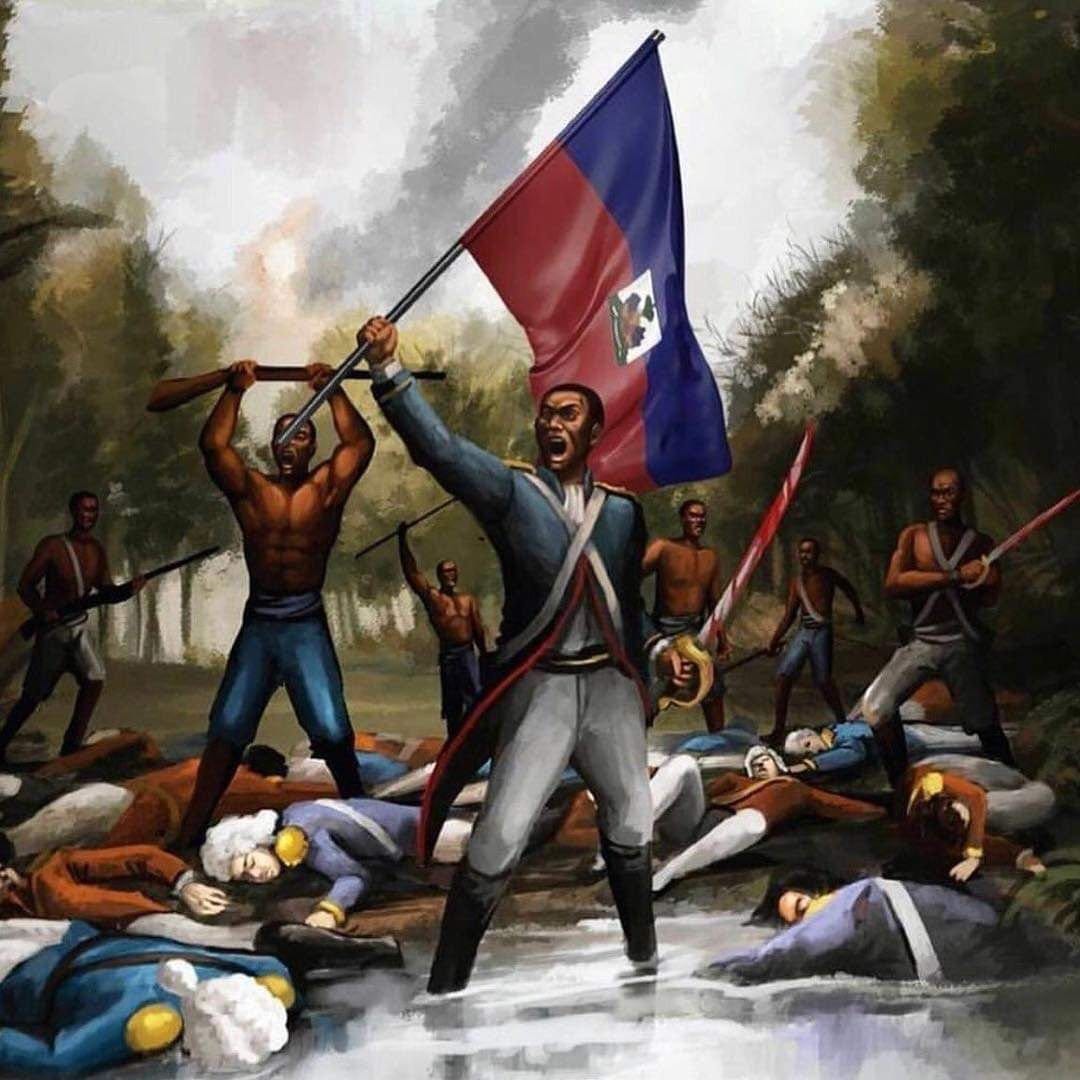
Every single word. I love the way you approach their hate with unapologetic love, not for them, but for Myles.
I want everyone to read this.
Beautiful as always, Marc! I hope that Myles will grow up to see his Haitian ancestry as the source of beauty and pride that it is. This letter will surely be a powerful reminder of that.